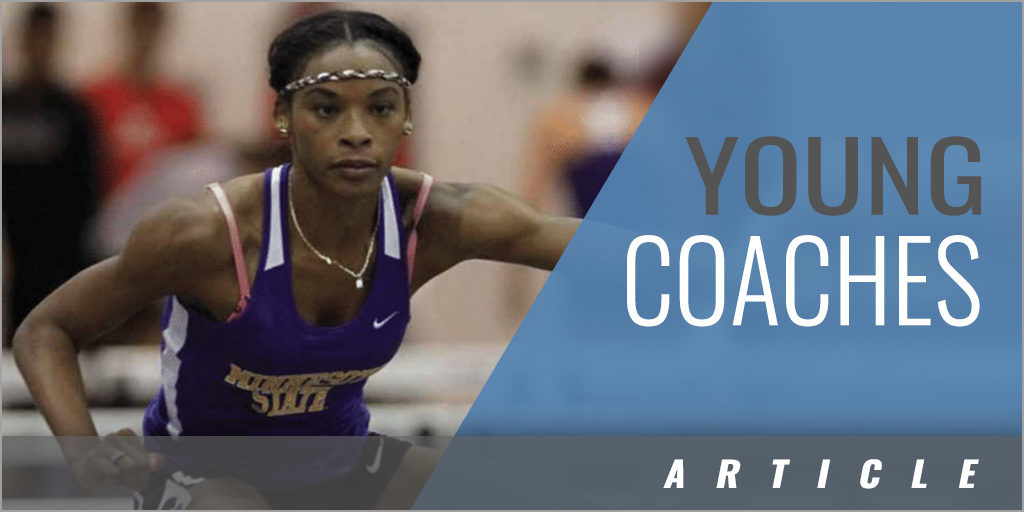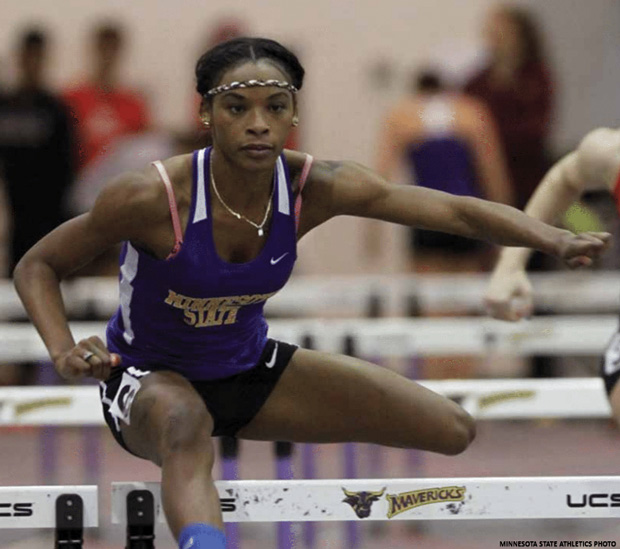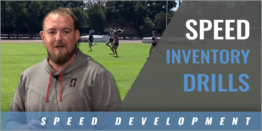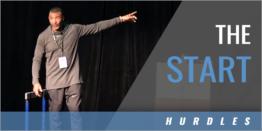|
By: Chris Parno Originally Published in: Techniques Magazine Provided by: USTFCCCA
I used to be slightly offended by the response I got from people when I told them that I was a collegiate track coach. Often people assumed that being a track coach was a part-time occupation, similar to a hobby. The false perception that a full-time track and field coach is anything but time consuming needs to be debunked. Is there a way to get the general population to better understand our craft? Is it even important for them to understand? Probably not, but it continues to tug at my thoughts as to why these misconceptions exist. Education towards the outside's perception of our craft is not nearly as important as the infra-coach education that is needed to continue advancing it. No matter the profession, education whether formalized in the university setting (bachelor's degrees) or informal (e.g., apprenticeships, mentoring, etc.) is a baseline for potential success. According to the U.S. Bureau of Labor Statistics, in 2017, people holding Bachelor's degrees made $461 more per week than someone with high school diploma. Furthermore, for the person with a high school diploma only, experienced unemployment rates double that of their bachelor degree counterparts. This is not to say that unemployment rates and earnings are directly proportionate to track and field coaching success, but it helps reinforce the point that education is a necessity in the equation for success. So where do coaches go for education? Currently, there is no clear-cut path to formalized education that is globally accepted within the realm of track and field. There are no required certifications or degrees outside of the NCAA recruiting test and CPR/AED training. There are thousands of articles, certifications, clinics, Twitter accounts, blogs, podcasts, etc. These convolute any coach's search for expertise. This barrage of information can be amplified by the multitude of training styles, philosophies, coaching theories, and applications of sports psychology to name a few. While most experienced coaches have the ability to decipher between quality information backed by science/biomechanics/experience, there is the potential to be tripped up by someone trying to make a buck. Often these people claim to have the final, definitive answer, or the secret to success through a piece of equipment you must buy. I'll admit, after graduating college and being offered a graduate assistantship, I thought I was overly qualified. I had been a multi-event athlete and had what I thought was a vast knowledge of the sport. At the time, it seemed obvious that this school hired me because they knew I could come in and coach! When I arrived, I was given a group of athletes to lead. Quickly I begin panicking as I set to writing training (something I had never done). I asked myself, "Now what?" This "Where do I start?" moment happens all too often to rookie coaches, and it plagues the progression of our craft. The experience of participating in track and field as a collegiate athlete does not qualify a person to become a collegiate coach. I may be able to change an electrical outlet in my house, but the restaurant being built down the street should not trust me to come in and map out their electrical work. To that point, education or apprenticeships are a starting point that can help fill in the gaps and provide a blueprint for young coaches. I can say I was lucky during my "Where do I start?" moment, with a mentoring coach on staff who believed in the power of education and sharing knowledge for the greater good. The Dunning-Kruger effect concept will help frame the rest of this article. It is defined in the field of psychology as, "a cognitive bias in which people of low ability have the illusory superiority and mistakenly assess their cognitive ability as greater than it is." I define these coaches as hacks, selling their snake oil to fulfill some ego-backed need for faux superiority, DEVELOPING A PHILOSOPHY A coaching philosophy can help identify the foundational themes or principles that practices are based on. A philosophy is not always in the forefront until an opportunity arises that requires a coach to formally write it down, such as a job interview or formal review, possibly even recruiting. I have always included this as a requirement in our job postings for graduate assistants at Minnesota State because it is important for prospective coaches to communicate their philosophies and align those with our programs. Coaches should always be thinking about what we are doing and why we do it. My philosophy is athlete centered. Their success should be the priority in the team equation. I try to keep mine to a few short points.
5 STOPS ALONG THE ROAD MAP FOR YOUNG COACHES Your reputation as a coach is based on your beliefs, your success on the track, how you carry yourself, and the style of training you employ. Is there any doubt that Vince Anderson of Texas A&M loves acceleration? Spend a day in a coaching education course with Vince as your instructor and his passion for acceleration and proper mechanics will be confirmed. So again, what do you want to be known for? The following five topics encompass a road map for young coaches. These are important to ensure a successful and lengthy career. Many do not often realize that the average NFL career length is only three years. How often do coaches in a given sport follow the similar path and wash-out? Between scandals, rule breaking, unsuccessful teams, and burnout, The following 5 themes can help young coaches get off on the correct foot.
LEARN YOUR EVENT AREA Undoubtedly, there is a wealth of knowledge and resources for track and field. For the young coach, finding the most credible sources and diving in deep is important. Just as a sprinter wants to create the highest acceleration curve in their start, a young coach wants to accelerate their learning on the highest curve possible. I was a completely average athlete with a coach that retired the year I graduated. I was not lucky to start with a mentor, so I turned to professional development courses instead. As a young coach, I wanted to recruit great athletes, develop athletes, and be successful in my career. Without the knowledge of physiology, biomechanics, physics, and psychology, I may have gotten lucky with a few athletes but would not find the sustained success I desired. I sought out professional development classes and worked my way through the I took the knowledge that I gained from these educational opportunities and applied it in many facets of my career (e.g., writing training, film sessions, practice sessions, etc.). I not only progressed my own career from year one, but I helped my athletes with training based on sound principles. Are there coaches that enjoy the title without putting in the work? Sure, but there are no excuses as to why collecting knowledge shouldn't be an integral part in a coach's development. Cost is one potential concern regarding these courses. There are many opportunities to secure the necessary funding. Outside of saving yourself, many schools have professional development money. Often the organizations running these courses have scholarships. If that fails, go to bat for your career and talk to your superiors about the importance and impact professional development can have on your athletes and the program as a whole. I ended up winning the same scholarship three years in a row from our governing body. Clearly, opportunity is out there. The supporting aspect to professional development, or even alternate route, is seeking out a mentor. Some have an easier time with this than others. It took me three years until I found someone I could call regularly and bounce ideas off of. Currently, I have a network of coaches I regularly communicate with and most of these relationships have been nurtured or developed through professional development and recruiting. There will be more on this subject later in the relationships portion. Lastly, learning the specifics of your events will make you more credible within the coaching community. Unfortunately, there are an unbelievable amount of training ideas, instructional videos and podcasts that greatly lack in factually backed information. Everyone should know that 8x600m is not a speed workout, but google "speed workouts" and 8x600m is the first 'advanced sprint workout' that pops up. YouTube can be a great source of quality videos, but often many videos show athletes performing skills incorrectly because of poor instruction and guidance. Learning your events from credible sources will provide you with a framework to better apply your new knowledge with your athletes and will further your skills as a critical thinker. I have a hard time trusting coaches that repeatedly show a lack The book "Game Changer" by Fergus Connelly and Phil White outlines this section perfectly with the following quote: "What if we invest in our people and they leave?" to which the response was, "What if we don't and they stay?" Our profession is at a greater loss with uniformed and uneducated coaches. Knowledge is power. Develop yourself as an asset to a program by advancing your knowledge, and our athletes and colleagues will reap the benefits. LEARN YOUR GOVERNING BODIES RULES (I.E., NCAA, NAIA, HIGH SCHOOL LEAGUES, ETC.) If you want to escort yourself out of the coaching profession quickly, break a bunch of rules. Controversy is a part of sports, each year the NCAA penalizes institutions for rules violations and publishes them publicly. These rules, and their violation, aren't specific just to NCAA. Each state has a governing body that outline rules for high school athletes and coaches to follow, same for the NAIA and Junior Colleges. It can be hard to say if these violations are malicious or the coaches were unaware. No matter how the violation occurred, the governing body will still bring about disciplinary actions. Ignorance is no excuse. Early on in my career, I had to self-report some social media violations. The NCAA was clearing the use of multiple platforms, however the rules were not outlined very clearly at the time. I still served a two-week recruiting ban. The NCAA did not care what I did not know, they only knew that I had violated a rule. I worked to better understand the rules. Not only are there meet day rules and regulations governing heat formation, field sizes, qualifying procedures, etc., there are rules for official/unofficial visits, countable hours, recruiting contact periods, and even who can pick an incoming athlete up from the airport. Yes, we are required to pass NCAA recruiting tests, but forty questions are not enough to sufficiently build your knowledge base. Your compliance officer may do rules meetings, but these sessions depend on the quality of the presentation. The first step for me was downloading the free NCAA eBook. I would take a few sections at time that pertained to my duties. As the recruiting coordinator, I read through the official/unofficial visit information. Through experience, you will continue to familiarize yourself with rules and you can always use the rulebook of your governing body for reference. Although we are an NCAA Division II institution, I find myself learning a lot of the division I rules as we recruit against division I schools often. Finding any advantage LEARN HOW TO TEACH Effective teaching is grossly underestimated in the world of coaching. Do coaches that have teaching degrees make better coaches? Not necessarily, but some of the training in social psychology, skill instruction, and applied learning may give these coaches a leg up. I was fortunate to have a back-ground in physical and health education where the director of the program believed greatly in the preparation of her students. Lesson planning for teachers is similar to writing training for coaches. It is easy to slap a warm-up, 10x30m acceleration and a cool-down on your training, but it leaves many details out. Coaches need to know how athletes will be organized, who is leading which group, how athletes will transition from element to element, and who will set up the equipment and when. Having a background in education assisted me with these operations and efficiency details. My college professors would scour the lesson plans I created and any detail that did not make sense either needed to be re-written to make sense or removed. Other coaches should be able to look at our training and know exactly what the goals and objectives are for the day. We do not need to write out every detail about how we will actually carry out the practice, but effectively planning goes a long way to ensure that the quality of the session will be high. If you don't have an education background, you can turn to apprenticeships, mentorships and graduate assistantships. When anyone reaches out to me about how to get started in collegiate coaching, I suggest finding a graduate assistant position; if that is not possible, I suggest finding a place to volunteer at until it is possible to secure a graduate assistantship position. Being a graduate assistant is a two-year opportunity to learn and prepare for a full-time position. Although it is not the only way to get in to college coaching, it gives a new coach time to learn from the existing staff at a given school. Most of the time, graduate assistants are in charge of smaller groups of athletes and given the opportunity to work under full-time coaches. The reason I choose to put "learn your event area" as my first point in this article is because effective teaching of a skill or technical concept requires a coach to truly understand it. Yelling "pick your knees up" as an athlete runs past will undoubtedly not correct the root issue. A coach must talk to the athlete about how to properly set up stretch reflexes in the hip after touchdown as the athlete moves the leg back to the frontside of their body. Furthermore yelling "arms" to a 400m runner struggling down the back stretch will do nothing for that athlete if they have not properly executed their race plan and effectively distributed their energy around the track appropriately. Again, teaching technique, events, race plans, and strategies should take up a majority of the sessions with your athletes. Teaching can be applied practically through film study. Review of practice and meet films will not only allow coaches to outline important aspects of the events, but will bring the athletes up to speed on techniques they are striving for. Coaches can provide sound event information while this reflection can help prepare the athlete for future practice sessions and meets. Film study is a teaching mainstay in other sports and should be applied more often to track and field. Lastly, the USATF coach's education program and the USTFCCCA academy were created to Regardless of whether you are trained in teaching, an athlete fresh off their career, or someone getting in to coaching later in life, there are opportunities and people out there that will help you expedite your career. This collaboration, along with spending time in the trenches actually coaching, will continue to advance our profession and your career. LEARN HOW TO RECRUIT AND UNDERSTAND ITS WORTH. Recruiting is the lifeblood of any program. For college coaches, recruiting talented athletes can be one of the greatest forms of job security. At the high school level, selling the value of your program to other sport coaches and recruiting athletes within the student body can help you maximize your situation. As you show other coaches the value of your program and how it can be beneficial for all sports, the impact and scope of your program will continue to grow. Recruiting seems easy, right? Call some high school/junior college athletes, talk about your program, and the athletes commit. Although this may be the case occasionally, a recruiter must worry about academic programs of interest, geographic proximity, familial concerns, influence of previous coaches, personalities, needs and wants of the athlete, GPA/ACT scores, scholarships, scholarship offers from other programs, and so on. It is no coincidence that there are entire companies that specialize in teaching coaches how to recruit. It has been proven time and time again that recruiting is an acquired skill. There is little doubt that a proven recruiter has the leg up in moving up the coaching chain by building more successful teams and sustaining success over many years. While always remembering that you must be able to coach/teach as well, prospective coaches that are proven high-level recruiters are more marketable to programs. When I got the job at Minnesota State, I figured out the niche of our university and came up with a corresponding recruiting philosophy. We are an affordable state school, with over 150 academic programs and a high acceptance rate. With this in mind, we once had an applicant for an assistant coaching position state that he only recruited athletes that had ACT scores of 30 or higher. This applicant could have been the best recruiter in the world, but with a team demographic where one of the current 121 athletes on the team met this standard...he clearly missed the niche of the university entirely. With a 93% graduation rate amongst my sprints/hurdles group, I rarely look at ACT and GPA alone as a predictor for their success at MSU. I know we have a great academic support network and the combined goals and motivation for success on the track will help them in the classroom. Additionally, building trust with the athletes' former coaches cannot be understated; getting their former athletes through your program with success and a degree builds trust for the future. Know your niche, build a reputation of success and reap the benefits. If you are in a program that is not currently successful, cast a large net. You cannot afford to be overly picky while building. Once you have established success, you can narrow your searches. But none of these matters if you are unwilling to put in the time. There will always be the coaches and programs that will blame their lack of success on access to certain athletes or call in to question the eligibility of talented athletes at other universities. More often than not, you will find that those coaches and their programs are not putting in the work. In recruiting, you cannot beat hard work. LEARN HOW TO CREATE MEANINGFUL RELATIONSHIPS WITH ATHLETES AND PEERS There are two levels to this: First, creating relationships with established coaches for mentorships and secondly, creating relationships with colleagues within your school, leagues, or division. Keep in mind that coaches you are reaching out to have their own set of responsibilities within their programs. Depending on which coaches you are reaching out to, there may be 100 other young coaches sending the same questions. Mike Holloway (University of Florida) shared some thoughts on this in my most recent USATF Level 3 course. He shared that many coaches are willing to share information and mentor young coaches, but it is on the young coach to stay consistent with communication. I was fortunate enough to do a yearlong apprenticeship with Kebba Tolbert (Harvard) and Ron Grigg (Jacksonville) as a part of the USTFCCCA master endorsement curriculum. Throughout the experience, I worked to balance consistency and preparation, as I knew both were quite busy. These coaches shared their knowledge, we discussed points back and forth, and with two positive experiences, I can still use them as references and resources in the future. On the other end of the spectrum are your immediate coaching colleagues. Opportunities here are nearly endless, and it could be as simple as creating relationships with other coaches in your school or university. Although there are differences in how other sports are coached, direct colleagues within your school can be useful for discussing about team management, recruiting multi-sport athletes, fundraising, and opportunities within the community. Outside of your universities, there are coaches at the conference, national, and high school level that can be used as resources. These people offer opportunities to bounce ideas around and even provide professional release for frustration. At Minnesota State, we host many track and field meets and our meets run smoothly because our staff makes a concerted effort to create positive relationships with the teams that come to our facility. Although I don't like using the word "networking" and would rather use "relationships," fostering either can help you down the road with recruiting, promotions, job opportunities, and gaining lifelong friendships. If you want to learn something, set up a time with a coach, buy them a drink or lunch to make it worth their while. CONCLUSION Although it is not overly important for the general public to fully understand the nuances of coaching or whether it's a full-time job, it is important for coaches to understand what it takes to be successful. In the social media world, everyone is an expert. Many times, the more advanced we try to get, the less we revisit the basics. I hope this article assisted in emphasizing five key stops along the road map of coaching. I will leave you with a study done by Duncan MacDougall (1907). Douglas hypothesized that the physical weight of the human soul is 21 grams. Taking this concept and extrapolating if out to the 121 combined athletes on the Minnesota state university track teams, you have 25411bs of souls that coaches are affecting. Always remember that we as coaches are managing someone's child on a daily basis and have direct influence and control over their outcomes. Don't take that weight too lightly, and put in the work to give these athletes an environment of learning as they seek your guidance! REFERENCES Dunning, D., & Kruger, J. (1999). Unskilled and Unaware of it How Difficulties in Recognizing One's Own Incompetence Lead Two Inflated Self-Assessments. American Psychological Association, 77, 1121-1134. Retrieved June 7, 2018. Employment Projections. (2018, March 27). Retrieved June 4, 2018, from https:II www.bls.govlemplchart-unemploymentearnings-education.htm Thomas, B. (2015, November 3). The Man Who Tried to Weigh the Soul. Retrieved July 6, 2018, from http:Ilblogs.discovermaga-zine.comIcrux120151111031weight-of-the-soullAW2hhlS2ZPMI Chris Parno is the Associate Head Coach at Minnesota State University Mankato and directly coaches the Men's and Women's Sprint/Hurdle Groups, while also serving as the Recruiting Coordinator. Parno holds a USTFCCCA Track & Field Academy Masters Certification in both the short sprints and the hurdles. |







